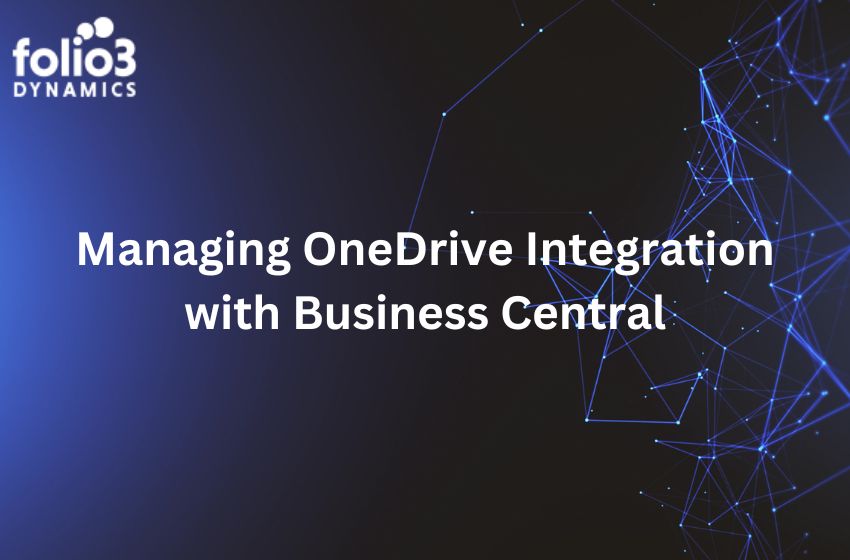In the rapidly evolving landscape of enterprise resource planning (ERP) systems, Microsoft Dynamics 365 Business Central stands out as a powerful solution. However, one major decision IT professionals and entrepreneurs must make is whether to deploy Business Central On-Premise or opt for the Cloud-based version. Each deployment model has its unique advantages and limitations, and understanding them is crucial for making an informed decision that aligns with your business needs.
Business Central On-Premise
Business Central On-Premise is a traditional ERP deployment model where the software is installed on local servers or data centers managed by the organization. This model offers several benefits, particularly for businesses that require extensive customization and control over their ERP system.
Advantages of On-Premise Deployment
- Complete Control Over Data: Businesses retain full control over their data, offering peace of mind for those concerned about data security and compliance with stringent regulatory requirements.
- Customization Flexibility: On-premise deployment allows for greater customization. IT teams can tailor the system to meet specific business needs without the limitations often imposed by cloud environments.
- Integration with Legacy Systems: For businesses relying on legacy systems, on-premise deployment offers easier integration options, ensuring a seamless transition and minimal disruption.
- Predictable Costs: With a one-time initial investment and predictable maintenance costs, on-premise deployment can offer better budget predictability compared to the recurring subscription fees associated with cloud services.
Limitations of On-Premise Deployment
- Higher Initial Investment: The upfront costs for hardware, software licenses, and implementation can be substantial.
- Maintenance and Upgrades: On-premise deployments require ongoing maintenance, including regular updates and hardware upgrades, which can be resource-intensive.
- Scalability Issues: Scaling an on-premise system can be challenging and costly, as it often involves purchasing additional hardware and managing increased infrastructure complexities.
Business Central Cloud
Business Central Cloud is the SaaS (Software as a Service) version of Microsoft Dynamics 365 Business Central, hosted on Microsoft’s secure cloud infrastructure. It offers a modern, flexible, and scalable solution ideal for businesses looking to leverage the latest technological advancements without significant upfront investments.
Advantages of Cloud Deployment
- Cost-Effective: With a subscription-based pricing model, businesses can avoid large initial expenses and benefit from predictable monthly or annual costs.
- Automatic Updates: Microsoft handles all updates and upgrades, ensuring your system always runs the latest version with the newest features and security enhancements.
- Scalability and Flexibility: Cloud deployment offers easy scalability. Businesses can quickly adjust their subscription level to match changing needs without worrying about hardware limitations.
- Accessibility: Cloud-based solutions allow access from anywhere with an internet connection, supporting remote work and mobile access.
- Reduced IT Burden: With Microsoft managing the infrastructure, businesses can reduce the burden on their internal IT teams, allowing them to focus on more strategic initiatives.
Limitations of Cloud Deployment
- Limited Customization: While the cloud version offers many customization options, it may not be as flexible as the on-premise deployment, particularly for highly specialized business processes.
- Data Control Concerns: Some businesses may have concerns about data security and regulatory compliance when their data is stored offsite, despite the robust security measures provided by Microsoft.
- Ongoing Subscription Costs: While the initial costs are lower, the ongoing subscription fees over time can become significant, especially for larger organizations.
Key Considerations for Decision-Making
- Business Requirements: Evaluate your business needs, including the level of customization required, data security concerns, and integration requirements with existing systems.
- Budget: Consider your budget for both initial implementation and ongoing costs. On-premise solutions may require a higher upfront investment, while cloud solutions involve continuous subscription fees.
- IT Resources: Assess your internal IT capabilities. If your team is small or lacks expertise in maintaining complex systems, a cloud solution might be more suitable.
- Scalability Needs: Determine your growth projections and the need for scalability. If you anticipate rapid growth or fluctuating demands, the cloud offers more flexibility.
- Regulatory Compliance: Consider industry regulations and compliance requirements related to data storage and processing. On-premise solutions provide more control, which may be necessary for certain regulated industries.
Conclusion
Both Business Central On-Premise and Cloud offer powerful features to streamline business operations, but the right choice depends on your specific needs and circumstances. On-Premise deployment provides greater control and customization, making it ideal for businesses with stringent data security requirements and complex legacy systems.
On the other hand, the Cloud version offers cost-effectiveness, scalability, and reduced IT maintenance, making it a compelling option for businesses seeking flexibility and modern accessibility.
Ultimately, the decision should be based on a thorough assessment of your business goals, technical requirements, and resource availability. By carefully considering these factors, IT professionals and entrepreneurs can select the deployment model that best supports their long-term growth and success.
Ready to explore how Business Central can transform your operations? Contact us today for a personalized consultation and discover the perfect solution for your business.








